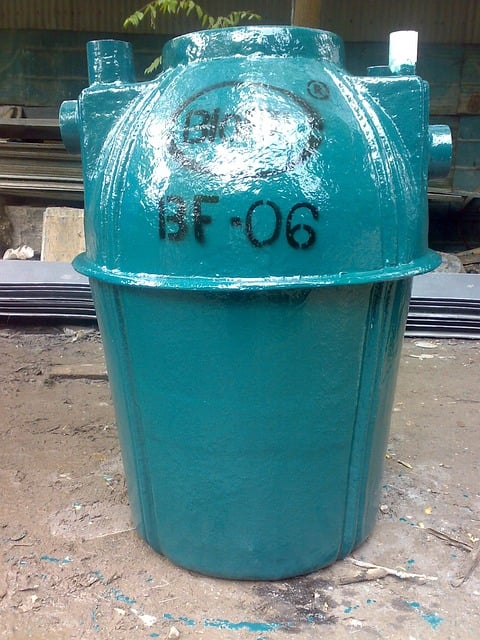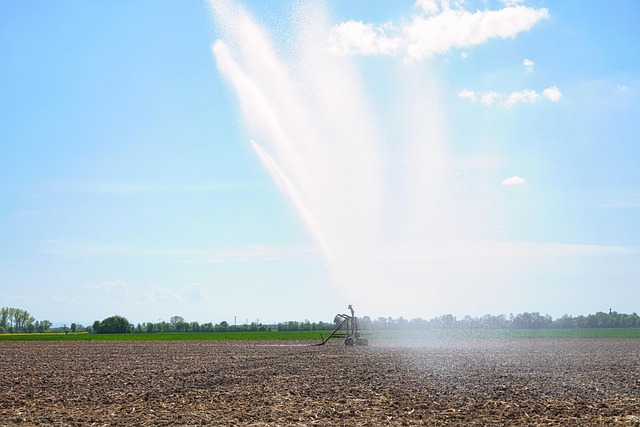Septic System Maintenance is key to efficient waste management, preventing costly repairs, and protecting the environment. Regular inspections, pumping, cleaning, and servicing by professionals can catch issues early, like clogs, sludge buildup, or bacterial growth, ensuring optimal system performance and longevity. Routine care extends the lifespan of your septic system, saves money, and promotes sustainable waste management.
Is your septic system showing signs of distress? Recognizing common issues early is crucial for maintaining a healthy, efficient system. Neglecting regular septic system maintenance can lead to costly repairs or even environmental harm. Learn to identify warning signs and understand why routine service is essential. From recognizing problems like clogs and leaks to understanding what happens during tank service, this guide equips you to keep your septic system running smoothly for years to come.
- Recognizing Common Septic System Issues
- The Importance of Regular Maintenance
- What to Expect During a Septic Tank Service
Recognizing Common Septic System Issues

Recognizing common septic system issues is crucial for maintaining a healthy and efficient waste management system. One of the first signs to watch out for is slow drainage. If you notice that your sinks, showers, or toilets are draining slowly or not at all, it could indicate a clog or buildup in the pipes. Another red flag is unusual odours coming from your drains or septic tank. This may suggest an accumulation of sludge or bacterial growth.
Backups and overflows are also critical indicators that something is amiss. If raw sewage backs up into your plumbing or you notice water pooling around your septic tank, it’s a clear sign that the system is failing. Regular maintenance, including professional inspections and pumping, can help prevent these issues from escalating. By staying vigilant and addressing potential problems early on, you ensure the longevity of your septic system and avoid costly repairs.
The Importance of Regular Maintenance

Regular septic system maintenance is paramount for ensuring the longevity and optimal performance of your septick system. Overlooked maintenance can lead to costly repairs or even complete system failure. By scheduling routine inspections, cleaning, and servicing, you can prevent these issues from arising. This proactive approach not only saves money but also protects the environment by minimizing the risk of pollution from improperly functioning septic systems.
Additionally, regular maintenance allows for early detection of potential problems. Septic experts can identify blockages, leaks, or other issues before they escalate, saving you from unexpected and often severe consequences. Staying on top of your septic system’s health is a responsible step towards ensuring a reliable and sustainable waste management solution for years to come.
What to Expect During a Septic Tank Service

When it comes to maintaining your septic system, scheduling regular service is key. During a typical septic tank service, professionals will begin by inspecting the tank for any signs of damage or leaks. They’ll then pump out the sludge and sediment that has accumulated at the bottom, ensuring the tank’s efficiency. This process not only helps prevent backups but also extends the life of your entire septic system. After pumping, experts will thoroughly clean the tank walls, removing any buildup that could hinder water flow. They might also check and replace the tank’s components, such as the outlet and inlet pipes, to guarantee optimal performance. Additionally, they’ll inspect the surrounding area for any signs of overflow or unusual odours, addressing potential issues before they become bigger problems.
Maintaining your septic system is crucial to avoiding costly repairs and ensuring a healthy, sustainable environment. By recognizing common issues early on, prioritizing regular maintenance, and understanding what to expect during service, you can protect this vital component of your property and avoid potential crises. Embrace proactive care for your septic system, as it’s a key investment in both your wallet and the local ecosystem.
